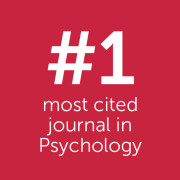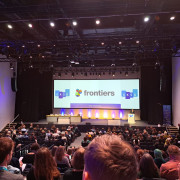- Science News
- Neuroscience
- Time is not ‘one size fits all’
Time is not ‘one size fits all’

This research suggests that 18-19 year old students would need to start in the early afternoon in order to optimize cognitive performance. Image by Shutterstock.
New research, published in Frontiers in Human Neuroscience makes the case against fixed starting times, i.e. a fixed one-size-fits-all approach for students and employees.
The timing of our days is usually a fairly settled routine that is practical for everybody. Modern life has been made more efficient and effective because of these routines. Yet is this really true? This research suggests, that in fact, the answer is no. Science is at its most exciting when a team discovers a new answer to an old question that changes our understanding.
This work addresses a fundamental aspect of everyday life: how we time our daily routines. Testing the assumptions behind these routines could have an immediate impact on our lives that are of fundamental importance.
This research published in Frontiers in Human Neuroscience analyzed the best times for undergraduates’ cognitive performance. Naturally, this is of great interest to Universities and to students. Universities have more than a thousand years of experience to draw on, and we assumed—incorrectly as it turns out—that they timed their daily routines rather accurately.
The wider context for this research is the timing of education in schools. Medical and neuroscientific evidence points to the fact that schools should open a hour later, or even more. In the United States the American Medical Association, Centers for Disease Control and Prevention and others have recommended Middle or High Schools should start their day after 08:30. This requires changing start times of 80% of schools in America, and similar changes are being advocated in other countries. Work hours for adults are also under scrutiny globally, with European countries implementing major changes. The bigger issue here is the optimal times for optimizing performance and health.
As a team, Dr. Paul Kelley and colleagues took on a great challenge: to create two new methods in different two different disciples: sociology and neuroscience. The neuroscience model was created from sleep, circadian and memory neuroscience and medical evidence over the last 20 years to predict optimal times for cognitive functioning in this age group. It involved creating a method of determining Biological Time, and a new time measure: Geophysical Biological Time, and precise predictions for performance times that were best. The sociological method used to determine optimal times was a new survey—but uniquely created a 24-hour profile for each student of their individual assessments of their cognitive function at each hour. All of this development work was challenging and complex.
‘The moment when we realized that the predictive approach and the 24-hour profiles matched almost perfectly was our proudest moment,’ says Dr. Kelley.
There were three highly significant discoveries. The first was that 18-19 year old students would need to start in the early afternoon (four hours later than most universities start!) in order to optimize cognitive performance. The second was there were no start times that could be used that would not significantly disadvantage at least one Chronotype group (morning, in between and evening types). The third was that there is no single solution that is as good as students setting their personal study times, summed up by Maria Evans: When optimizing performance “time is not a “one size fits all” phenomenon”.
These findings have far-reaching implications: our daily routines do not make our lives more efficient or effective. Fixed starting times disadvantage large groups. Solutions for this are possible, and the fundamental perception that ‘time is not a one size fits all’ indicates flexibility and personalization of times is the way to optimize human cognition.
Read the full article: Identifying the Best Times for Cognitive Functioning.
This research is part of a broader collections of articles – a Research Topic – around time patterns and their functions in human neuroscience.








